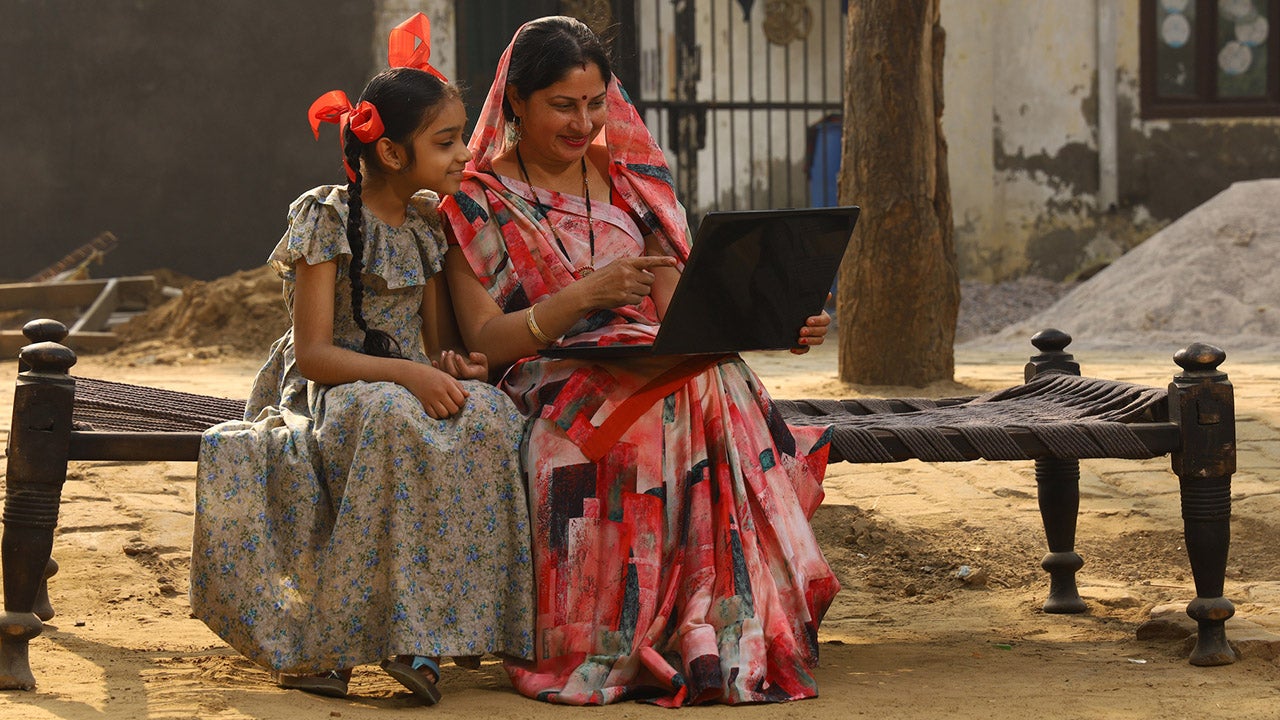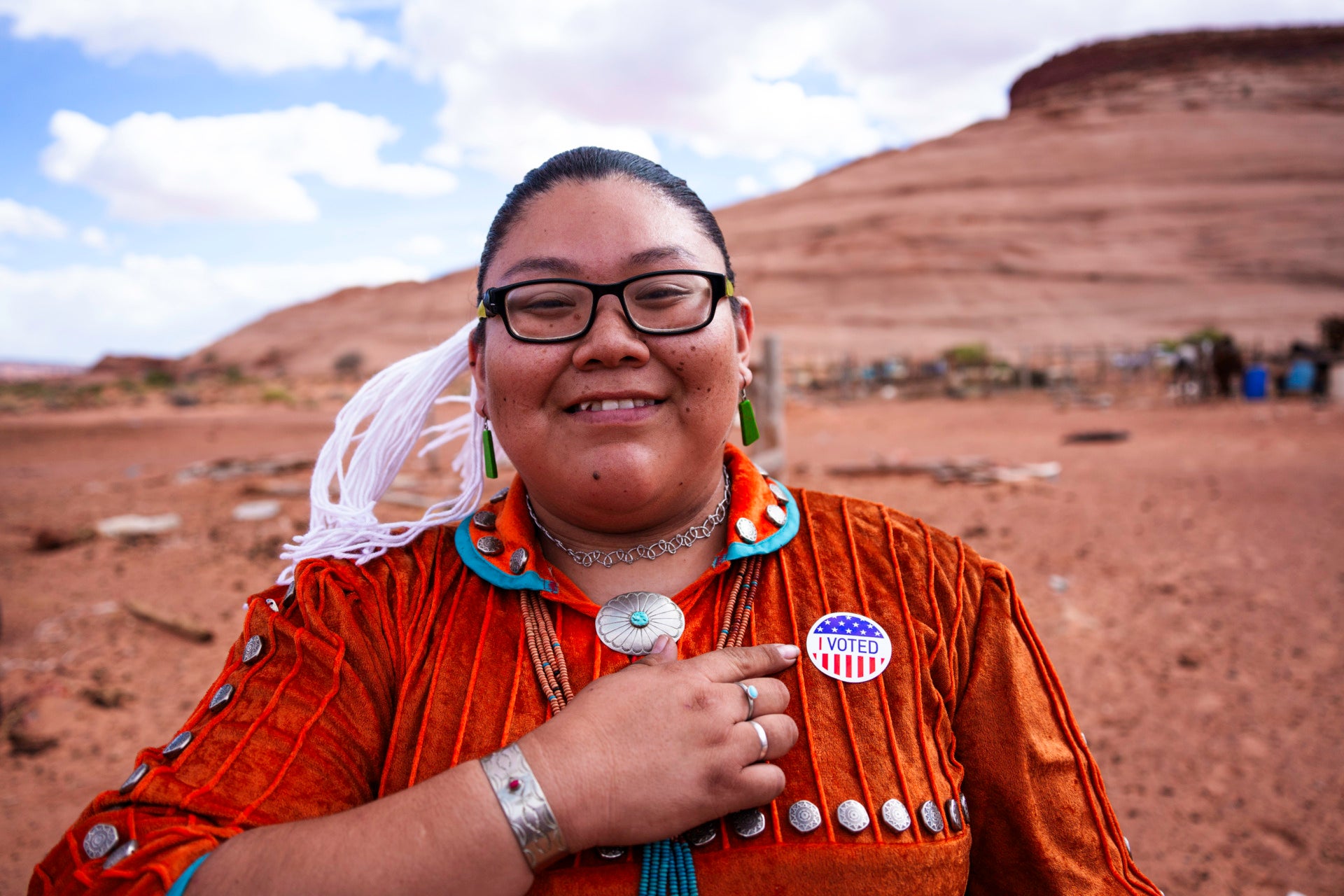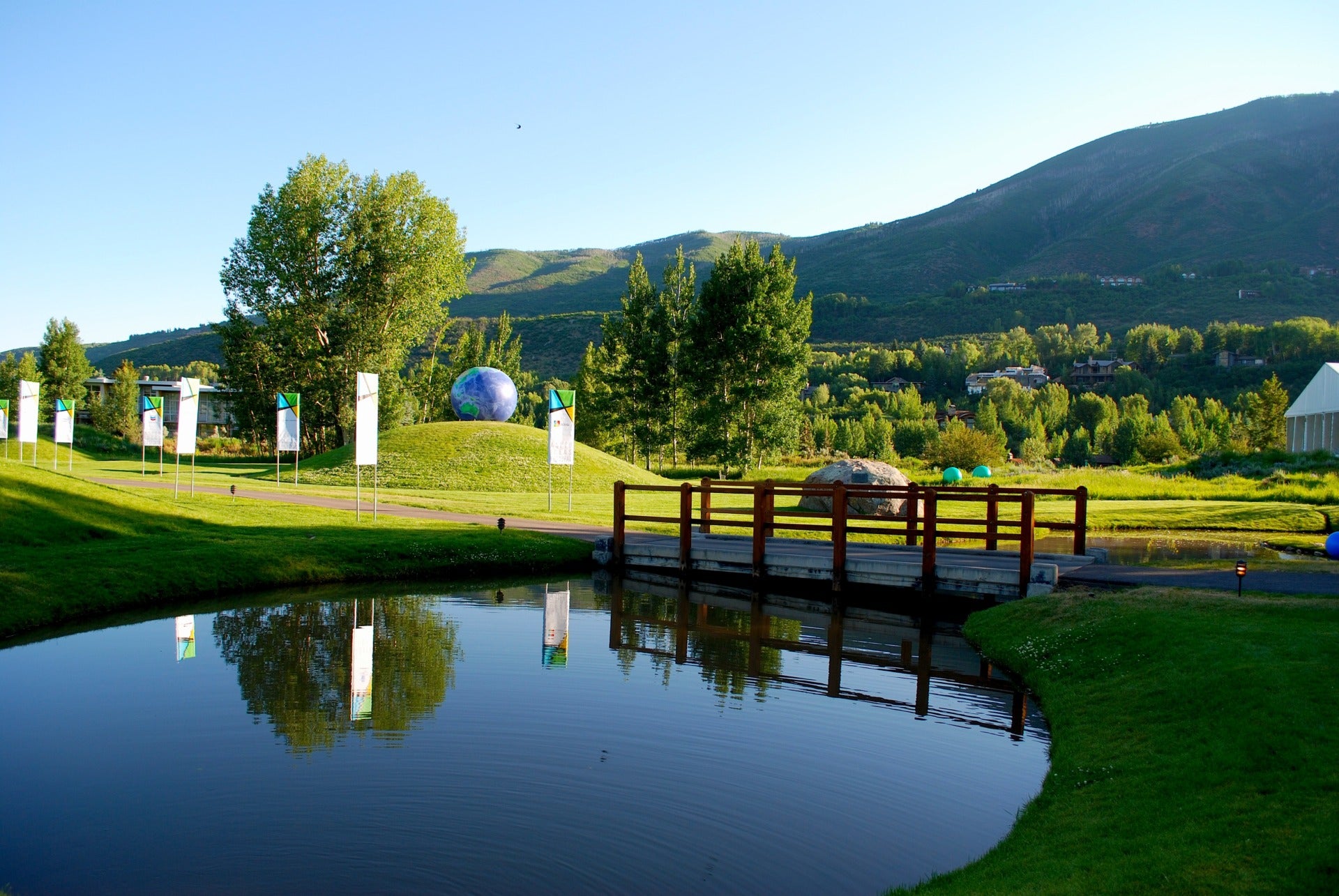Connecting young people from different backgrounds and cultures gives them the opportunity to take on new perspectives. They can discover what binds them as humans. Virtual exchange does this on a global scale, providing a space for young people to build relationships founded on trust, mutual understanding, and fellowship. The Aspen Institute’s Stevens Initiative is an international leader in virtual exchange. For seven years, the program has made these seminal experiences possible for tens of thousands of young people.
Ahmed Adel, a 22-year-old from Yemen, and Jonah Carlson, a 20-year-old from Utah, met as participants in Amideast’s Qisasna. This virtual exchange program, supported by the Stevens Initiative, brings American and Yemeni students together to produce collaborative podcasts focusing on global issues, perceptions of both cultures, career opportunities for young people, and community service. In the following interview, Ahmed and Jonah share how virtual exchange made their friendship possible.
Tell us about your virtual exchange experiences.
Ahmed Adel: I have joined three Stevens Initiative virtual exchange programs: World Learning’s The Experiment Digital, Qisasna, and Soliya’s Global Circles. During these exchange programs, I had a chance to make American friends and get to know people from different countries and nationalities. I could view the world from a new point of view.
Jonah Carlson: When I first heard about virtual exchange, I was interested but hesitant because I wasn’t sure how much I’d get out of it compared to a physical exchange program. But it was just this incredible experience where I met lovely people like Ahmed. I felt so much more connected to them over the Internet than I thought I would, having never met them in person.
Were you able to make friends through your virtual exchange? What did you learn about your peers?
Ahmed: I definitely made friends through these programs. Before the exchange, I believed stereotypes about American culture from TV shows and movies. Meeting real Americans and talking to them every day proved me wrong. I realized how good, helpful, and supportive they are. Now when I need help—whether with my applications, school, or other tasks—I know I can ask my American friends.
Jonah was working with the American team, and I liked how he was very active, responsive, and friendly. Whenever I needed something, like scheduling an interview or transcribing a podcast, I would talk to Jonah. We got to know each other and became friends. After the program, we continued making podcasts together. Since then, we’ve shared our stories and plans for our future. We’ve built trust with one another.
Jonah: I thought we’d just meet up to do work, but I was able to connect with people on a personal level. I learned about their ambitions and their future plans. I was surprised by how many friends I could make through an online virtual experience. I’ve kept in touch with a few people, but I especially love talking to Ahmed. He’s one of the sweetest people I’ve ever met. Talking to Ahmed is like catching up with a family member. We have mutual respect, and working on this project united us.
Virtual exchange helped me understand what life is like outside of the United States. Many people, especially in Utah, a predominantly white and mono-religious state, have these stereotypes about those from the Middle East. They think they won’t be able to connect deeply because of their perceived cultural differences. But I learned that we lead similar lives. We do our schoolwork. We spend time with friends and family. This may sound a little corny but learning that people all over the world have the same experiences as me—that they struggle too—was really comforting.
Some people believe that having different backgrounds or perspectives means there’s no room for common ground. How would you respond to this after your virtual exchange experience?
Ahmed: Everybody is different. We’re not the same. But I believe every person has something the other person doesn’t have, so we complete each other. I know I’m coming from a different country with a different culture and background, and the same thing goes for Americans. We all taught each other. We asked for help from the American participants, and they asked for help from us. The fact that we are collaborating and vibing with each other means we’re completing one another.
After my virtual exchanges, I implemented projects in Yemen. I’ve asked my American friends for help with my ideas and proposals. Now I’m trying to work with them on projects that reach people in Yemen and the United States.
Jonah: A lot of people are intimidated right off the bat because when we learn about other places, we mainly focus on the differences—in culture, in religion. So you get this shock like, “Oh, my goodness! Everybody in the world outside of my country is so different from me! How could I ever really connect with them?” And then, when you meet with people outside the US like I did with this virtual exchange program, you see that the everyday things we experience are surprisingly similar.
We think our values are so dramatically different because the differences are emphasized. But when it comes to things like having a good time with friends and being kind, those things are the same across many cultures. It’s easy to find common ground in people’s basic humanity and what they want for the future.
Why is it important to connect and build trust with other communities?
Ahmed: In Yemen, we have misconceptions about not just Americans but all people from abroad. We hear stories and believe them. We can be stuck in the past and focus on how things always have been. I like to discover things for myself—I don’t just believe what people tell me. The reason that I tried exchange programs was to learn more about American people. Who are they? What do they believe? What do they want to do? Why do they care about their interests? I want to discover the truth and teach Yemenis about people from different places.
I also joined these programs to represent the bright side of Yemen. To be honest, I think the media talks about the Middle East very negatively. But the majority of people in the Middle East are good. They are peaceful people. I always point out that we’re trying to make changes as well. We care about education and other issues. I want to shed light on our region and show that people in the Middle East are as good as anyone else.
Jonah: In a digital age, where you have access to almost anybody’s stream of thought, it’s so easy to feel like you’re alone in the world and that nobody else has any similarities with you. It is one of the most alienating experiences. You are just usernames on a screen, a couple of pixels on your laptop or phone. I constantly reminded myself that everybody I interact with is human with their own interests and goals, and that they’re interested in me too. This helps keep my spirits up and connects me to the greater world. Virtual exchange helped me connect with people that I otherwise would’ve never met.
What advice would you give to someone who is worried about engaging with different communities, specifically through virtual exchange?
Ahmed: My advice for anyone who is trying to get involved in a virtual exchange is that the only constant thing in life is change. If you have the chance, learn more about other people, their cultures, and how they think. Take a chance to try new things.
Jonah: When it comes to virtual exchange, I suggest that everybody toss out their preconceived notions. Even though an online experience is happening through your laptop or your phone or over text, you’re still making memories that will stick with you and shape who you are.
People worry about meeting those they may not have much in common with. There are road bumps, but it’s not the end of the world. Take a leap of faith. Make great memories. All of the awkward parts that happen are going to fade away, and you’re never going to remember them. Those scary things were never as important as the friends and memories I made.
Can you describe your friendship in three words?
Ahmed: Helpful, awesome, new.
Jonah: Nothing’s more valuable.


